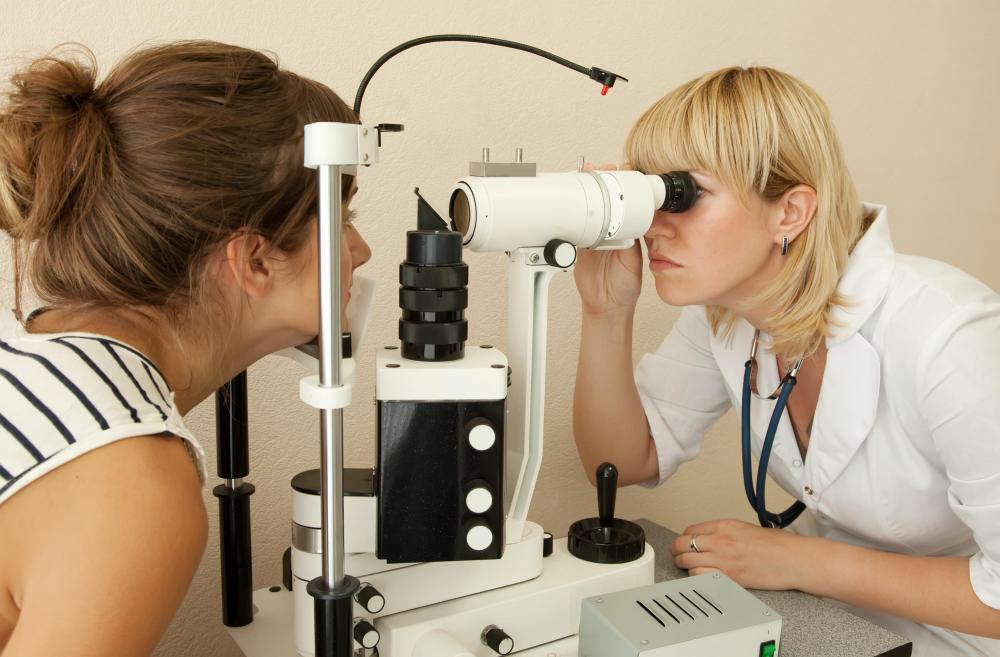At WiseGEEK, we're committed to delivering accurate, trustworthy information. Our expert-authored content is rigorously fact-checked and sourced from credible authorities. Discover how we uphold the highest standards in providing you with reliable knowledge.
What Is the Connection between Melatonin and Diabetes?
Supplemental melatonin is often used in addition to the body's natural melatonin production, which aids in regulating normal sleep patterns, to help a person sleep. The link between melatonin and diabetes exists in some scientific literature, suggesting that chronic use of melatonin supplements may contribute to the disease. Although the exact metabolic pathways by which melatonin contributes to diabetes is not fully understood, it is known that melatonin can cause unstable blood sugar levels. Doctors and supplement specialists will often suggest that a person with diabetes avoid using melatonin regularly, as it is very likely that uncontrollable blood sugar levels will occur upon waking.
Melatonin is a natural hormone secreted by a gland in the brain during times of darkness that makes people feel groggy and sleepy. Often, a person will use melatonin supplements to aid in falling asleep or regulating a normal sleep cycle. Some physicians may suggest the use of melatonin supplements for the occasional use of insomnia, yet refrain from recommending it for long-term use. This is often due to some studies that show a link between supplemental melatonin and diabetes, making it a dangerous choice for those already suffering from pre-diabetes or diabetes.

Most studies on melatonin and diabetes look at the effects of melatonin supplementation on blood sugar levels, as uncontrollable blood sugar and ineffective insulin are both hallmarks of the disease. The majority of studies on melatonin and blood sugar levels examine individuals with diabetes, yet there exists some evidence that blood sugar levels can rise in healthy individuals, as well. It is often suggested that those with diabetes or pre-diabetes monitor their blood sugar carefully, and only use melatonin supplements occasionally to avoid high blood sugar spikes. Both melatonin and diabetes still require research to determine the effects on individual body types, and not on the population as a whole.

Healthy individuals, or those who do not suffer from any form of diabetes, can also find that fasting blood sugar can become quite high in the morning after taking melatonin. The exact metabolic pathways by which this occurs is not fully known, but a certain gene has been found to influence this behavior in the body when it reacts with melatonin. Researchers hypothesize that healthy individuals may develop diabetes later on in life with the continued use of melatonin over a long period, yet long-term studies have yet to be completed. Sleep disorder specialists who have studied melatonin and diabetes might recommend that patients use more natural ways to increase melatonin production, such as avoiding too much artificial light during nighttime hours.
AS FEATURED ON:
AS FEATURED ON:














Discussion Comments
I just read an article saying melatonin reduces diabetes in rats. Why would it do the opposite in humans?
So type 1 diabetics managed with insulin just need to check it more. Does this effect last all day or just the morning?
@literally45-- I recommend switching to another treatment, because melatonin really does cause a spike in blood sugar. I have diabetes and I cannot take melatonin.
Any food or supplement that causes sudden changes in blood sugar is bad because these spikes lead to insulin resistance, which is the precursor to diabetes.
This goes for a food that's high in carbohydrates and sugar. It also goes for melatonin.
@literally45-- I don't think that supplements lead to diabetes.
I've actually heard that people who produce less melatonin are more likely to develop diabetes. So the diabetes risk might have to do with this rather than taking supplements.
I've been using melatonin supplements for a few months. I had no idea that melatonin supplements can contribute to diabetes. That's terrible!
I'm sad to hear this because melatonin has been working great for me. I'm able to sleep with these supplements and I don't keep waking up at night like I usually do. I guess I need to find another solution for my sleep problems because I certainly don't want diabetes.
Post your comments